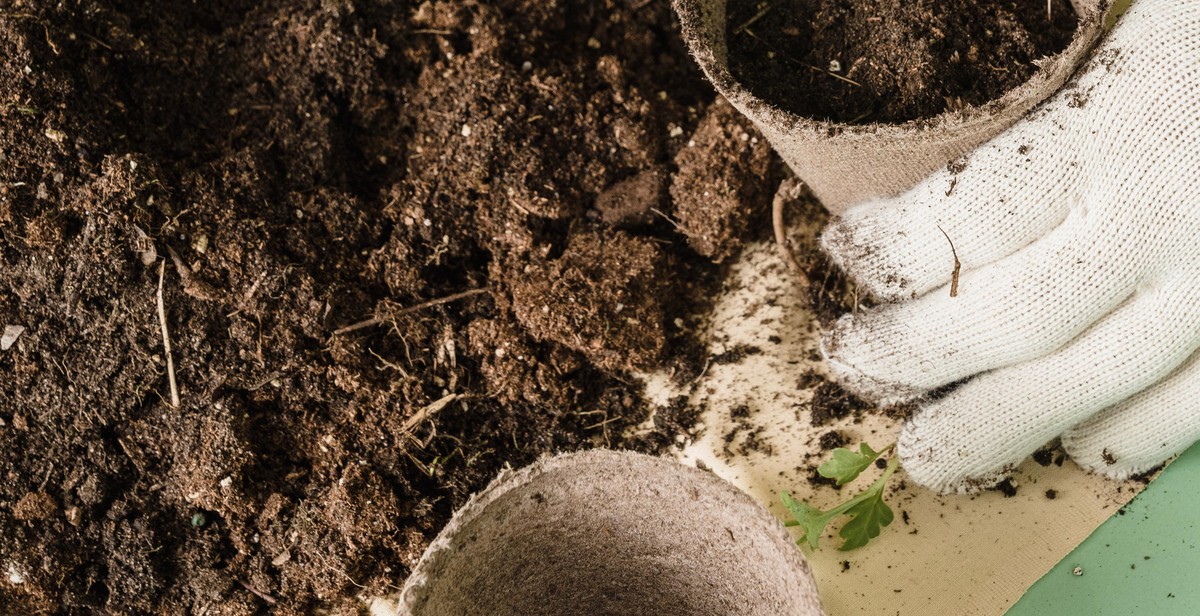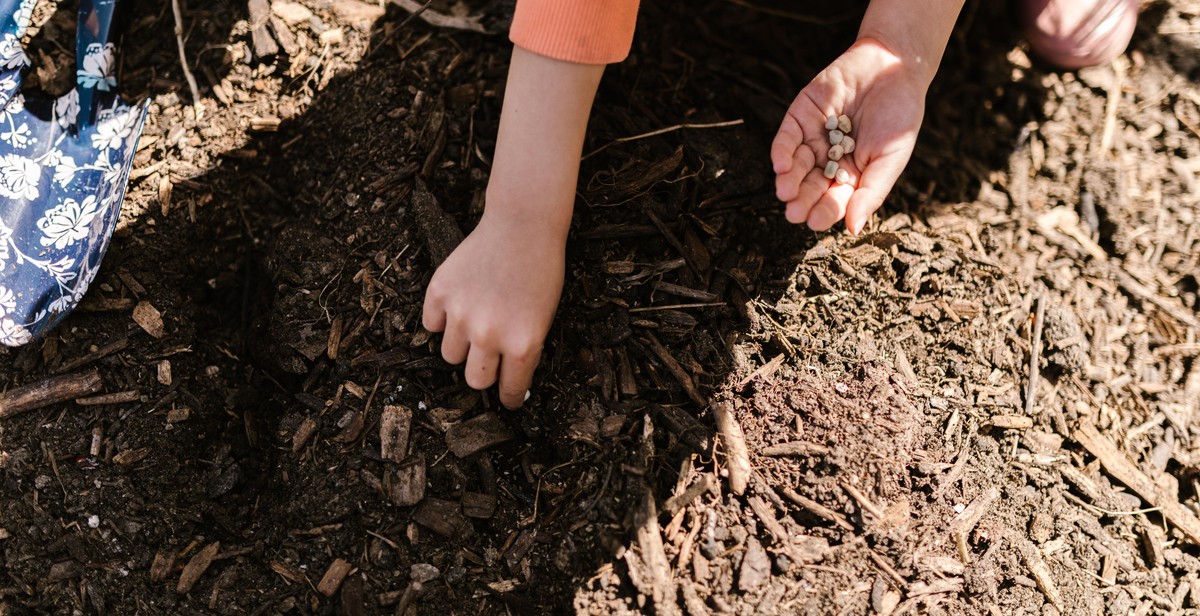The Benefits of Composting for the Environment
Composting is the process of breaking down organic materials, such as food waste and yard trimmings, into a nutrient-rich soil amendment. This natural process can be done on a small scale in a backyard bin or on a larger scale at a commercial facility. Composting has numerous benefits for the environment, and it’s becoming an increasingly popular way for individuals and communities to reduce waste and improve soil health.
Reducing Landfill Waste
One of the most significant benefits of composting is the reduction of waste that ends up in landfills. When organic materials are sent to landfills, they decompose and produce methane, a potent greenhouse gas that contributes to climate change. Composting these materials instead allows them to break down naturally and create a useful product.
Improving Soil Health
Compost is a nutrient-rich soil amendment that can improve soil health and fertility. It helps retain moisture, reduces erosion, and provides essential nutrients for plant growth. Composting can also help remediate contaminated soils, such as those found in urban areas or former industrial sites.
Reducing Chemical Fertilizer Use
Compost can replace or reduce the need for chemical fertilizers, which can have negative impacts on the environment. Chemical fertilizers can contribute to water pollution and harm beneficial soil organisms. Composting provides a natural alternative that supports healthy soil ecosystems.
Conclusion
Composting is a simple and effective way to reduce waste, improve soil health, and support a healthy environment. Whether you’re a homeowner, gardener, or community member, composting is a practice that everyone can adopt to make a positive impact.

Benefits of Composting for the Environment
Composting is the process of breaking down organic waste materials such as food scraps, yard waste, and leaves into a nutrient-rich soil amendment. It is an environmentally friendly way to dispose of organic waste and has numerous benefits for the environment.
Reduces Landfill Waste
Composting diverts organic waste from landfills, where it would otherwise take up valuable space and contribute to greenhouse gas emissions. According to the Environmental Protection Agency (EPA), organic waste makes up approximately 30% of the waste stream in the United States. By composting this waste, we can reduce the amount of waste sent to landfills and prolong the life of existing landfills.
Improves Soil Health
Compost is a nutrient-rich soil amendment that can improve soil health and fertility. It provides essential nutrients such as nitrogen, phosphorus, and potassium, and helps to retain moisture in the soil. Compost also helps to improve soil structure, making it easier for plant roots to grow and access nutrients. By adding compost to soil, we can improve the health and productivity of our gardens and landscapes.
Reduces Greenhouse Gas Emissions
When organic waste is sent to landfills, it decomposes and produces methane, a potent greenhouse gas. Methane is a major contributor to climate change, and reducing its emissions is critical in the fight against global warming. Composting organic waste instead of sending it to landfills can significantly reduce greenhouse gas emissions and help mitigate the effects of climate change.
Saves Money on Fertilizers and Pesticides
Compost can be used as a natural fertilizer and soil amendment, reducing the need for synthetic fertilizers and pesticides. Synthetic fertilizers and pesticides can be expensive and can have negative impacts on the environment and human health. By using compost instead, we can save money on these products and reduce our reliance on harmful chemicals.
| Benefit | Description |
|---|---|
| Reduces Landfill Waste | Composting diverts organic waste from landfills, reducing the amount of waste sent to landfills and prolonging the life of existing landfills. |
| Improves Soil Health | Compost is a nutrient-rich soil amendment that can improve soil health and fertility, making it easier for plant roots to grow and access nutrients. |
| Reduces Greenhouse Gas Emissions | Composting organic waste instead of sending it to landfills can significantly reduce greenhouse gas emissions and help mitigate the effects of climate change. |
| Saves Money on Fertilizers and Pesticides | Using compost as a natural fertilizer and soil amendment can reduce the need for synthetic fertilizers and pesticides, saving money and reducing reliance on harmful chemicals. |

How to Compost
Composting is a great way to reduce waste and help the environment. It’s a natural process that breaks down organic materials into nutrient-rich soil that can be used in gardens and landscaping. Here’s a guide on how to compost:
Choosing a Composting Method
There are several composting methods to choose from, depending on your space, time, and needs. Here are some popular options:
- Backyard composting: This is the most common method, where you create a compost pile in your yard. You can use a compost bin or build a pile directly on the ground. This method is great for people with a yard or garden.
- Vermicomposting: This method uses worms to break down organic materials into compost. You can keep a worm bin indoors or outdoors, and it’s a great option for people who live in apartments or have limited outdoor space.
- Trench composting: This method involves digging a trench in your garden and burying food scraps and other organic materials. This method is great for people who don’t want to maintain a compost pile or bin.
What to Compost
Not all organic materials are suitable for composting. Here are some things you can compost:
- Fruit and vegetable scraps: This includes peels, cores, and seeds.
- Coffee grounds and filters: These are rich in nitrogen and make great compost.
- Eggshells: These are a great source of calcium for plants.
- Leaves and grass clippings: These are high in carbon and help balance the nitrogen-rich food scraps.
- Shredded paper and cardboard: These are a great source of carbon and help aerate the compost pile.
Here are some things you should not compost:
- Meat and dairy: These can attract pests and take a long time to break down.
- Oily or greasy foods: These can also attract pests and slow down the composting process.
- Plastic, metal, or glass: These materials do not break down and can contaminate the compost.
Maintaining Your Compost Pile
Maintaining your compost pile is important to ensure that it breaks down properly and doesn’t attract pests or emit odors. Here are some tips:
- Aerate the pile: Use a pitchfork or shovel to mix the compost and add air to the pile.
- Keep it moist: The compost should be damp, but not too wet. Add water if it’s dry.
- Add brown and green materials: Add a mix of carbon-rich and nitrogen-rich materials to balance the compost.
- Avoid adding meat and dairy: These can attract pests and slow down the composting process.
- Harvest the compost: Once the compost is dark, crumbly, and smells earthy, it’s ready to use in your garden or landscaping.
In Conclusion
Composting is a simple and effective way to reduce waste and help the environment. By choosing a composting method, knowing what to compost, and maintaining your compost pile, you can create nutrient-rich soil that will benefit your plants and the planet.

Conclusion
Composting is an effective way to reduce waste and improve the health of the environment. By diverting organic waste from landfills, composting reduces greenhouse gas emissions and helps to combat climate change. In addition, composting produces a nutrient-rich soil amendment that can be used to improve soil health and plant growth, reducing the need for synthetic fertilizers and pesticides.
Composting is also a simple and accessible practice that can be done in any space, from a small apartment balcony to a large backyard. With the right tools and knowledge, anyone can start composting and make a positive impact on the environment.
Key benefits of composting include:
- Reducing waste sent to landfills
- Reducing greenhouse gas emissions
- Producing nutrient-rich soil amendment
- Improving soil health and plant growth
- Reducing the need for synthetic fertilizers and pesticides
- Conserving water by improving soil’s ability to retain moisture
Overall, composting is a simple and effective way to reduce waste and improve the health of the environment. By incorporating composting into our daily lives, we can make a positive impact on the planet and help to create a more sustainable future for generations to come.
